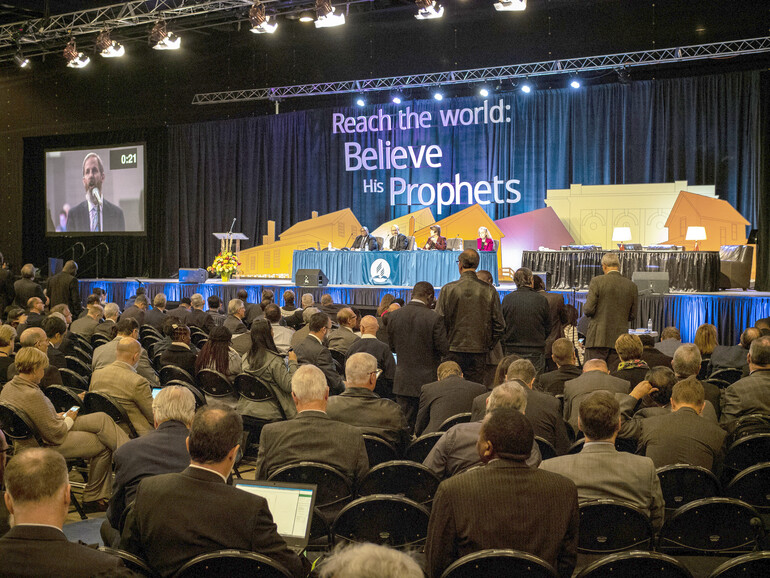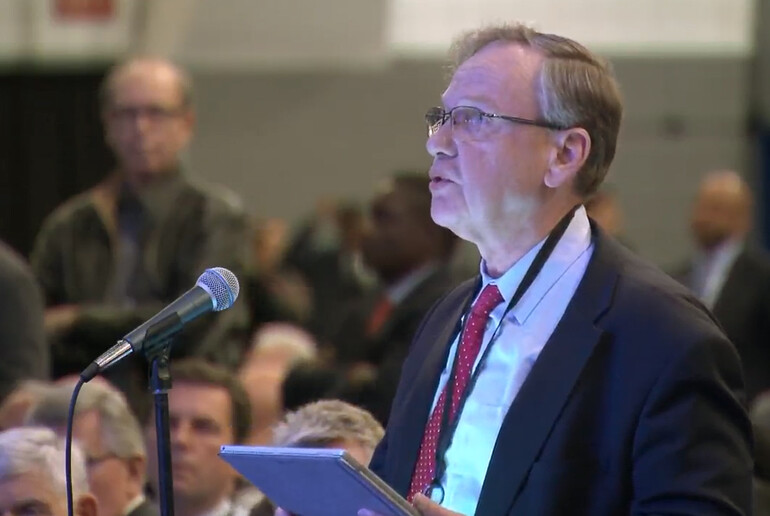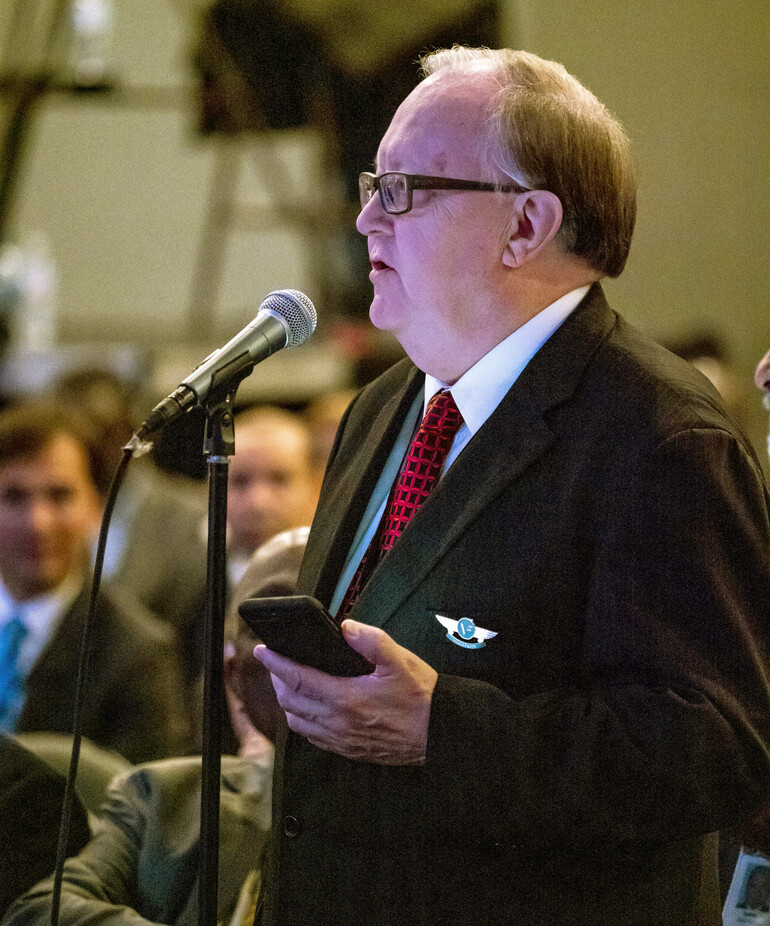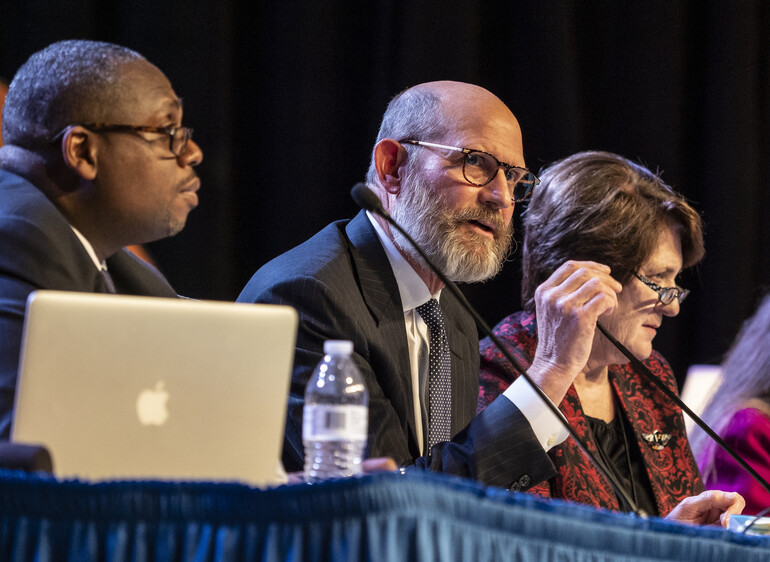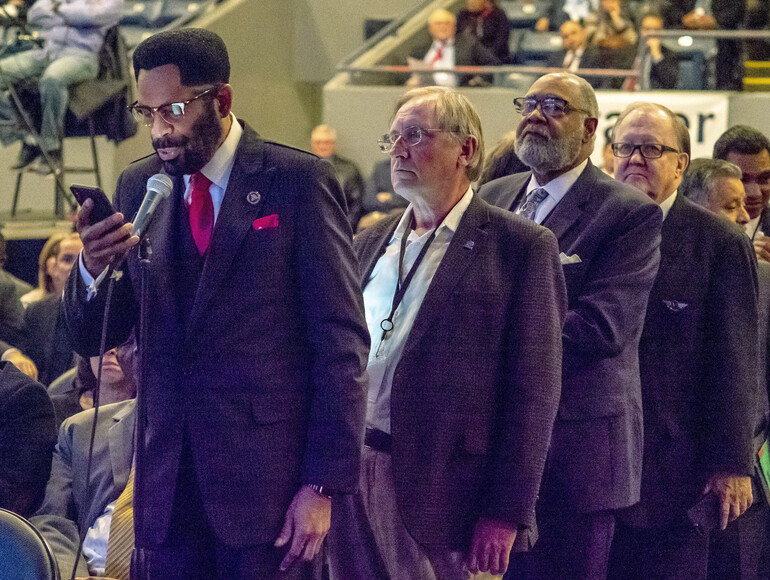During its Annual Council business meeting on Sunday, Oct. 14, 2018, the General Conference (GC) executive committee voted 185 to 124 (with two abstentions) to approve a plan to seek uniform policy compliance throughout the world church.
The approved document outlines a process that initially supports the current method of allowing instances of noncompliance to be dealt with at the Adventist Church's administrative level closest to the matter. However, if compliance cannot be achieved at that level, the new plan forwards the matter to the General Conference administrative committee (ADCOM). That group may in turn refer it to one of five newly formed committees tasked to further investigate matters of noncompliance.
During the five-hour presentation and discussion, many delegates expressed support for consistent application of church policy but also significant concerns about methods and principles represented by the proposed plan. Those concerns center around what some describe as a trend that effectively reverses the intentions of the 1901 church reorganization, which distributed management of church operation and mission to divisions, unions and conferences. It allowed more efficient decision-making in areas closest to leading-edge action in local fields. Some worry the new document puts too much control back into the hands of a few leaders in the General Conference. They contend it will only emphasize the existing divide among church members who value authoritarian uniformity and those who are just as adamant about the Protestant principle of representative democracy.
John Freedman, North Pacific Union Conference president, added his voice to those concerns. Following are the main points of his comments publicly directed to Ted N.C. Wilson, General Conference president and chairperson of the meeting.
“Brother chair,” he said, “we need a bridge to peace. I’m afraid this is a discipline document, not a unity document. I cannot support it in the way it is being presented or for what it really is and what it really does. I have had more members call me about this issue than any other issue I’ve seen before. They ask, ‘Is this the way Christ would lead His church?’ I have to say, ‘No.’ Is true Christian unity the same as compliance? No. Can true Christian unity be forced? The answer is no. Is this really a unity document? No. We need to look for a way to bridge the gap that is between many people in this room but also many within our church. Can we do better? Yes. By God’s grace, we can create a bridge, centered in Christ-like forbearance, that will bring peace and not harm to the church and lead us to become more Christ-like in the way that we treat one another.”
The concerns expressed by Freedman and others from around North America and Europe did not carry the day. The final vote on the document represented a clear majority of the GC delegates who believe the previous process did not result in adequate policy compliance and that more should be done to ensure uniform practice. This will likely be embraced by many of the fastest growing areas of the world church. How other divisions, unions and conferences will react — specifically those already viewed by world church leaders as out of compliance in matters of ordination policy — remains to be seen.
Those who wish to watch the archived video of the entire afternoon's presentations and discussion can access document files and videos online at the Adventist Church's Annual Council page.
North American Division (NAD) officers published a corporate response following Sunday’s vote. Their statement reads as follows:
“This is a very challenging time for the Seventh-day Adventist Church in North America. Actions taken at the 2018 General Conference Annual Council meeting in Battle Creek, Michigan, did not have the outcome for the church that we had strived toward. Many of us are dealing with fear, disappointment, and even anger.
“We believe that this voted document, which outlines a system of governance to address church entities perceived not in compliance with church policy, does not follow the biblical values proclaimed by the Protestant reformers and the founders of the Adventist Church. This document, as voted, has made centralized power possible, and seeks to create a hierarchical system of governance.
“In a collaborative effort, leaders in the NAD are discussing how the church in North America will move forward. Although this is difficult, amid the rancor we must keep our faith in Jesus. He is our Leader, and it is our trust in Him that will light our way. The mission, the work of the church, must and will go forward.
“Policies don’t hold us together. The Spirit of God holds us together. We urge you to pray for the Church; pray that we allow the Holy Spirit to do His work, to let the Holy Spirit keep us united.
“’Let us not become weary in doing good, for at the proper time we will reap a harvest if we do not give up’ (Gal. 6:9, NIV)."
In the NAD Newspoints e-newsletter released on Oct. 15, the NAD officers also included a special message to women clergy within North America. Read it and the rest of the newsletter here.



